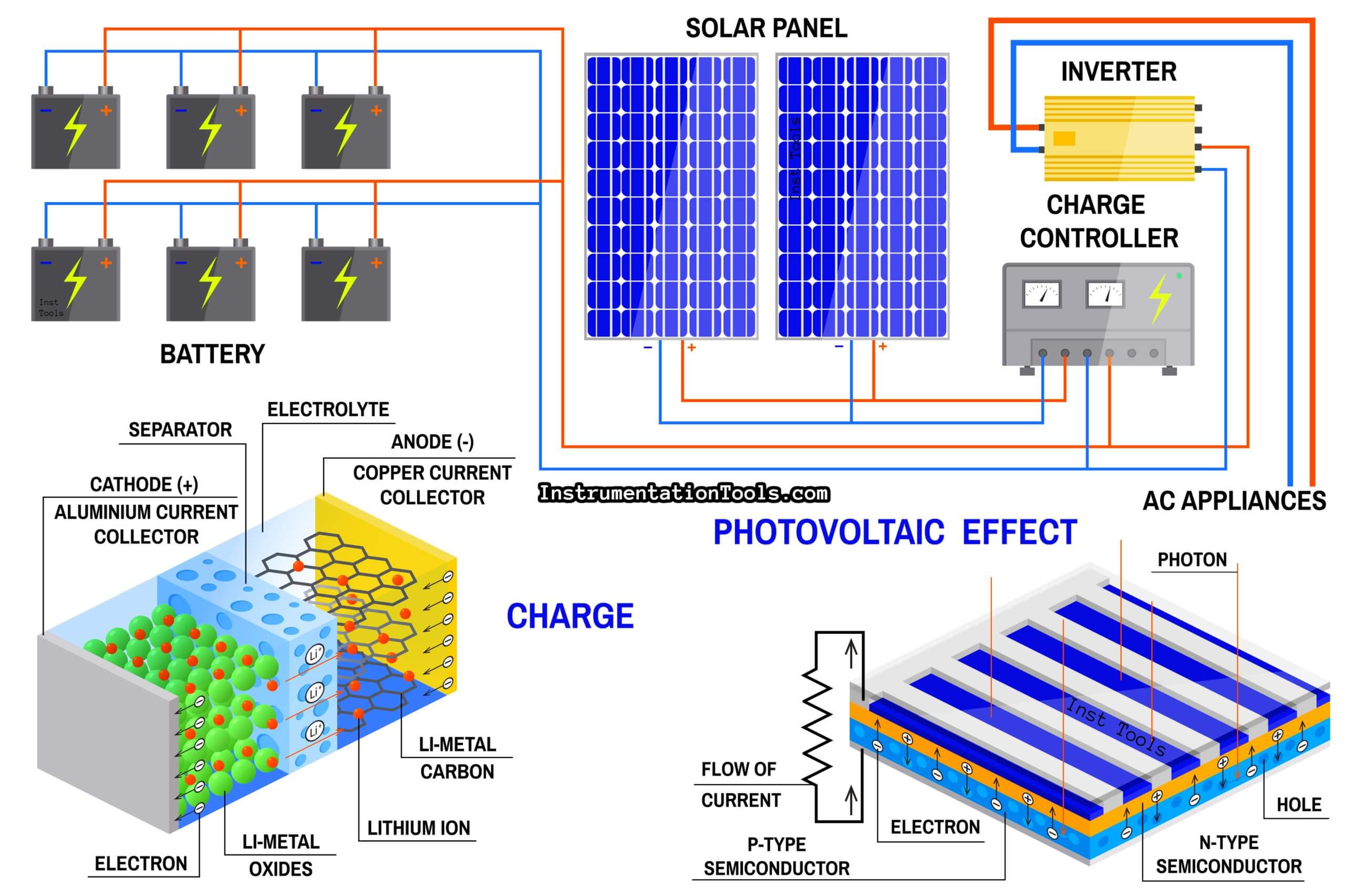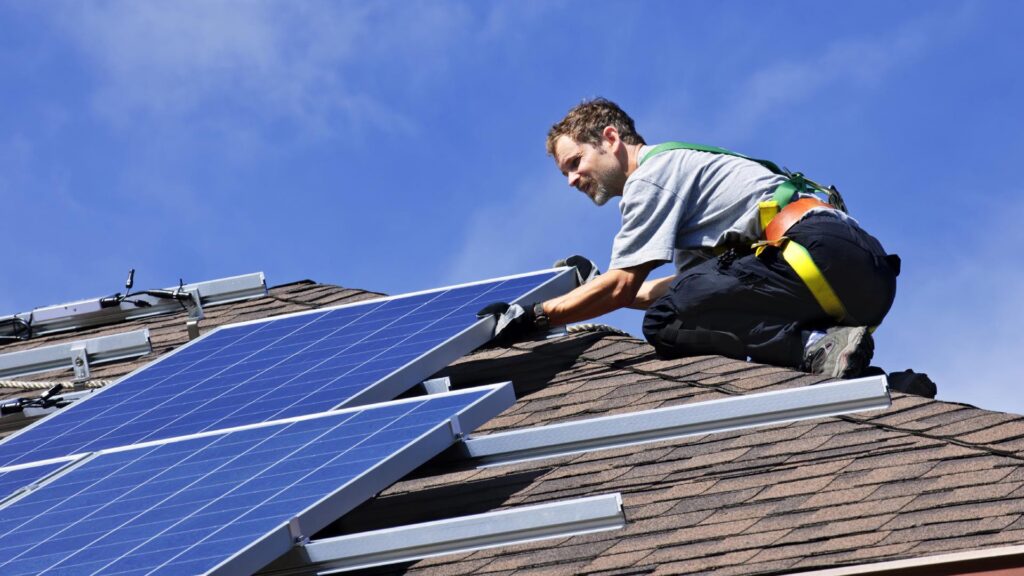Solar panel not generating enough electricity? This comprehensive guide delves into the causes and solutions to restore optimal performance.
From electrical system inspections to panel maintenance and inverter troubleshooting, we’ll empower you with the knowledge to diagnose and resolve issues effectively.
Electrical System Inspection
Inspecting electrical connections and wiring is crucial for ensuring optimal solar panel performance. Loose or corroded connections, damaged wires, or faulty components can significantly hinder electricity generation.
Common electrical issues that can affect solar panel performance include:
- Loose or disconnected wires
- Corrosion or oxidation on terminals
- Damaged or frayed insulation
- Faulty junction boxes or inverters
Tools and Techniques
Electrical system inspection typically involves the following tools and techniques:
- Multimeter for measuring voltage, current, and resistance
- Insulation tester for checking insulation integrity
- Infrared camera for detecting hot spots or loose connections
- Visual inspection for identifying any physical damage or defects
Panel Degradation and Efficiency

Over time, solar panels can experience degradation, leading to a decrease in their electricity generation capacity. Understanding the factors that contribute to this degradation is crucial for maintaining optimal panel performance and ensuring a long-lasting investment.
Factors such as dirt, debris, and environmental conditions can significantly impact panel efficiency. Regular cleaning and maintenance are essential to mitigate these effects and preserve panel performance.
Environmental Conditions
- Extreme Temperatures: Excessive heat or cold can accelerate panel degradation by causing thermal stress on the materials.
- UV Radiation: Prolonged exposure to ultraviolet rays can damage the protective coating on panels, reducing their efficiency.
- Humidity and Moisture: Humidity and moisture can lead to corrosion and electrical faults within the panels.
Dirt and Debris, Solar panel not generating enough electricity
- Dust and Pollen: Accumulation of dust, pollen, and other particles on the panel surface can block sunlight from reaching the cells.
- Bird Droppings: Bird droppings contain acidic compounds that can damage the panel surface and reduce efficiency.
- Salt and Sea Spray: In coastal areas, salt and sea spray can cause corrosion and damage to panels.
Cleaning and Maintenance
Regular cleaning and maintenance are essential to maintain optimal panel performance. Cleaning should be done using mild soap and water, avoiding harsh chemicals or abrasive materials. Periodic inspections should be conducted to identify any damage or issues that require attention.
Inverter Issues
Inverters are crucial components in solar energy systems, converting direct current (DC) power generated by solar panels into alternating current (AC) power that can be utilized by appliances and the grid. Common inverter problems can significantly affect electricity generation.
Troubleshooting Inverter Issues
Troubleshooting inverter issues requires systematic checks:
- Confirm power input: Ensure solar panels are generating power and connected securely to the inverter.
- Check inverter status lights: Observe any error codes or indicators on the inverter’s display panel.
- Examine wiring connections: Inspect all wiring connections between solar panels, inverter, and electrical panel for any loose or damaged wires.
- Monitor inverter temperature: Excessive heat can cause inverter malfunctions; check if the inverter is overheating and ensure proper ventilation.
- Consult inverter documentation: Refer to the inverter’s user manual for specific troubleshooting steps and error code interpretations.
Resolving inverter issues may involve:
- Resetting the inverter: Turning the inverter off and back on can resolve minor software glitches.
- Replacing faulty components: If specific components within the inverter fail, they may need to be replaced by a qualified technician.
- Updating firmware: Installing the latest firmware updates can address software bugs and improve inverter performance.
- Contacting a professional: If troubleshooting steps fail to resolve the issue, it’s advisable to contact a certified solar installer or electrician for further assistance.
Regular maintenance and monitoring of the inverter can help prevent issues and ensure optimal electricity generation.
Shading and Orientation

Shading and orientation play a crucial role in the performance of solar panels. Understanding these factors and implementing proper measures can significantly improve electricity generation.
Shading occurs when objects like trees, buildings, or even other panels block sunlight from reaching the solar cells. Even partial shading can lead to a noticeable decrease in power output. To minimize shading, it’s essential to carefully plan the placement of panels and avoid areas with potential obstructions.
Proper panel orientation and tilt angle are equally important. The optimal orientation depends on the geographic location and should be aligned with the sun’s path. The tilt angle should be adjusted to maximize sunlight exposure throughout the day. Generally, a south-facing orientation with a tilt angle equal to the latitude of the location provides the best results.
By considering shading and orientation, homeowners and businesses can optimize the performance of their solar panels and maximize electricity generation.
Monitoring and Data Analysis
Monitoring solar panel performance is crucial for ensuring optimal electricity generation. Monitoring systems provide valuable insights into system behavior, allowing for timely identification and resolution of performance issues.
If your solar panel isn’t generating enough electricity, it’s important to check for any potential issues that may be affecting its performance. However, even with regular maintenance, solar panels can still experience decreased efficiency over time. To ensure you’re getting the most out of your solar investment, consider the benefits of solar panels and how they can help you save money and reduce your environmental impact.
While troubleshooting your solar panel’s performance, keep in mind that factors such as shading, dirt accumulation, or inverter issues can contribute to reduced electricity generation.
These systems collect data on various parameters, including:
- Power output
- Energy production
- Panel temperature
- Inverter efficiency
- Environmental conditions
Data analysis is essential for extracting meaningful insights from the collected data. By analyzing trends and patterns, system owners can:
- Identify underperforming panels or inverters
- Determine the impact of shading or environmental factors
- Optimize system settings to maximize output
- Predict future performance and energy generation
Regular monitoring and data analysis are essential for maintaining a high-performing solar PV system, ensuring a reliable and cost-effective source of renewable energy.
Last Word: Solar Panel Not Generating Enough Electricity

Optimizing solar panel performance requires a systematic approach. By addressing electrical issues, mitigating degradation factors, resolving inverter problems, and ensuring optimal shading and orientation, you can maximize electricity generation and harness the full potential of your solar system.
Essential Questionnaire
Why is my solar panel system not producing as much electricity as it used to?
Panel degradation, electrical issues, inverter problems, shading, and improper orientation can all contribute to reduced electricity generation.
How can I inspect my solar panel system for electrical issues?
Use a multimeter to check for loose connections, damaged wiring, and proper grounding.
What are some common inverter problems that can affect electricity generation?
Overheating, overloading, and component failures can cause inverter issues. Troubleshooting involves checking for error codes and ensuring proper ventilation.
How can I optimize panel placement to minimize shading?
Use shading analysis tools to identify potential shading sources and adjust panel placement accordingly. Consider using solar trackers to maximize sunlight exposure.


